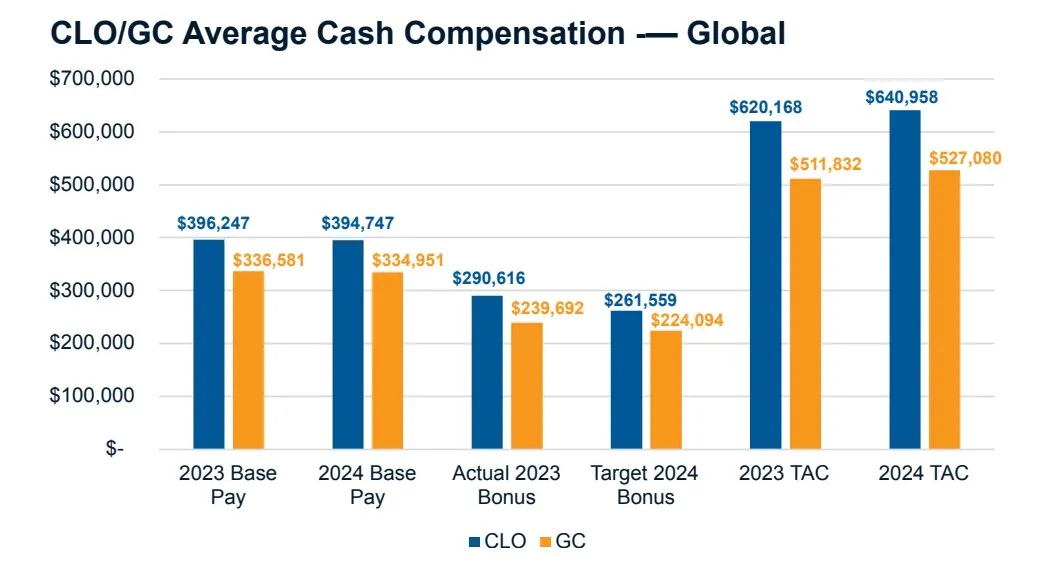Compensation for chief legal officers and general counsel declined for the first time in more than a decade as bonus payments dipped 15% between 2021 and 2023, according to a survey of legal executive compensation.
Total cash compensation for GCs and CLOs has dropped by 4% since 2021 to an average of $556,794, legal recruiting firm Major, Lindsey & Africa said Wednesday in its 2024 in-house compensation report.
The compensation decline was the first in the bi-annual survey, which dates to 2012.
Companies are turning to “budget-friendly ways” to boost non-cash incentives such as flexible scheduling and work-from-home options, the firm said.
“Some organizations are tightening their belts, being more cost-conscious, and hesitating to pull the trigger in committing to expensive new hires who may or may not ultimately work out,” according to the report, which is completed bi-annually. Movement among in-house legal talent has declined from recent years, the report, which also limited income gains across the industry.

Less-senior legal staff also saw income gains. Cash paid to deputy general counsel and associate GCs rose 8%, while the most junior in-house attorneys saw 19% increases in the cash component of their income.
More than 2,100 in-house lawyers from 46 countries responded to the online survey, conducted with Western Management Group, which ended in spring 2024. The respondents were 58% men and 82% in North America, with 12% in Europe.
Another major finding: Compensation for in-house attorneys at publicly traded companies dwarfed the pay of private ones. Bonus targets for this year are 72% higher for GCs at public companies and 68% higher for CLOs.
Despite the gloomy income news for many top legal executives, those who work as chief compliance officers are seeing robust compensation gains.
In the U.S., CCOs saw a 36% jump in base pay, to an average topping $403,000, while total cash compensation surged by 72% to an average of nearly $741,000. Bonuses accounted for much of the gains, with a massive 181% leap in bonuses from 2021 to last year to an average of more than $484,000.
These compensation increases show that “newer and developing needs for increased compliance oversight are taking priority over attracting and retaining talent in the legal department,” the report said, noting that the CCO role has become “essential” to align company policies with external regulations, especially in highly regulated industries.
Compliance officer compensation is also being driven by their larger roles in companies’ ESG strategy and helping to staff operational teams that provide monitoring and proactive controls in regulated industries.
CCO compensation is likely to keep rising, although not as sharply, as the role further expands its scope and corporate importance, the Major, Lindsey & Africa report said.
“The market is reflecting the increased emphasis on culture and compliance – and the expanding role this is creating for CCOs,” Jeannine Lemker, managing director in MLA’s In-House Counsel and Board Services groups and a co-author of the survey, said in a press release.
Some regulators also have “become more direct and pointed in their view” that the CCO should be an independent executive team function, which elevates the role to the executive leadership team, she said.











